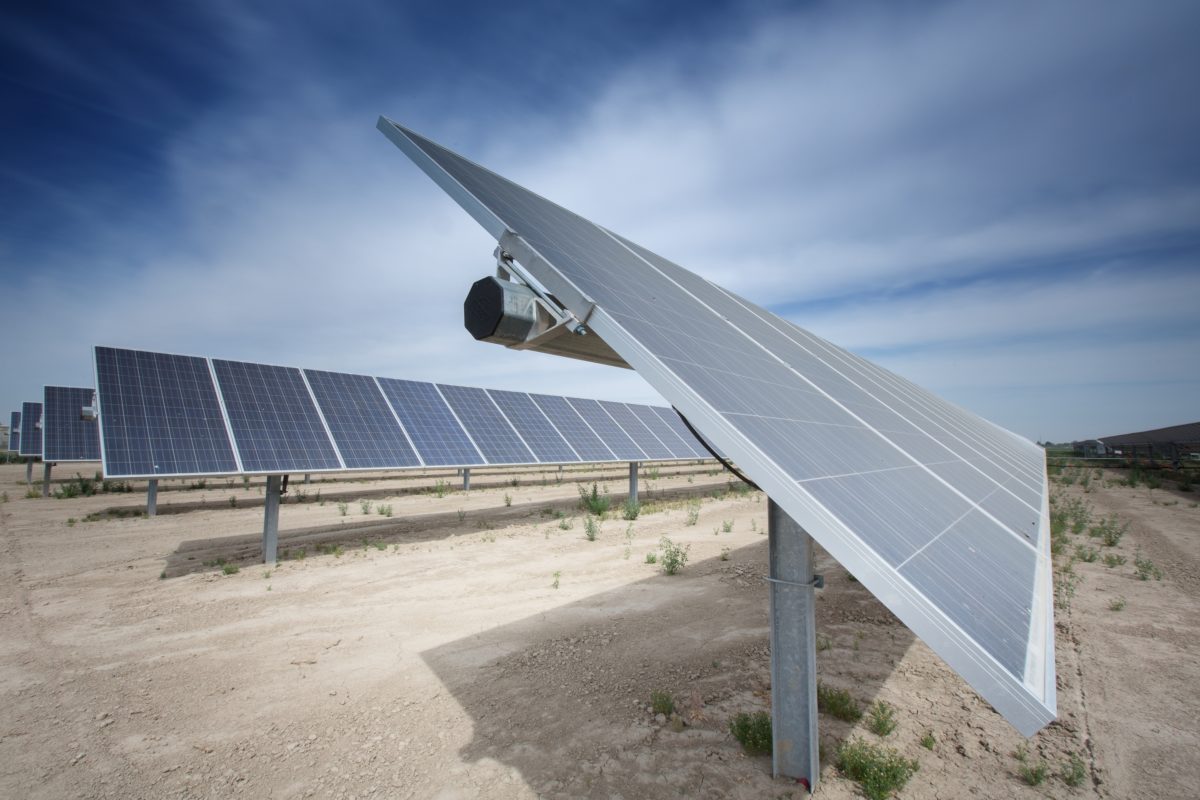Globally, PV capacity will expand more over the next five years than any other renewable-energy technology, KPMG said in its latest report, Great expectations: Deal making in the renewable energy sector.
The accounting and financial services firm drew its findings from a survey of 200 renewable-energy investors, which was conducted in the third quarter of 2017. It solely spoke to investors that specialize in large-scale PV, thermal solar, hydropower, biomass and geothermal projects, as well as onshore and offshore wind installations.
KPMG said it expects solar to outpace other renewable technologies, due to “improvements in technology and lower costs relative to other types of renewables.” PV has grown more than any other renewable-energy sub-sector in recent years, it said, accounting for 47% of all new generating capacity that was added throughout the world in 2016, followed by wind power at 34%, and hydropower at 15.5%.
Battery storage innovation
“But the future of all three depends on innovation in battery storage and energy aggregators, both of which are becoming increasingly important to investors,” KPMG said. “Innovation in secondary technology like storage and energy aggregators is also proving to be important in investment decisions, as they contribute to stability and security of supply.”
Almost all of the survey respondents said battery storage has become an important consideration when weighing the pros and cons of a potential investment in renewable-energy projects. KPMG said that 31% of those who responded believe that battery-backed renewables will start delivering continuous electricity at grid parity within the next five to six years. However, 38% of respondents said that they don’t expect that to happen for another nine to 16 years.
“Large, grid-scale battery systems are vital to the future of renewables,” KPMG said. “There have been remarkable developments in the area of battery storage in recent years.”
Similarly, nearly all of the survey respondents expect more and more investors to aggregate small renewable-energy projects in the years to come, primarily as a means of encouraging investment. In addition, KPMG noted that 74% of respondents believe that hydrogen will play a key role in facilitating renewables deployment in the years to come.
“Demand and supply are monitored and dispatched by the aggregator, so the grid is kept in balance,” the global accounting firm said, noting that solar and wind projects are often built in jurisdictions with “fragile,” overburdened grid infrastructure. “Networks of this kind — known variously as virtual power plants (VPPs) — are built around the latest advances in technology, from the cloud to smart appliances.”
Popular content
Policy power
About 60% of the respondents to the survey said that they viewed Germany’s policies as the most progressive in the developed world, as they are the most conducive to investment. However, 43% said the U.S. had the least attractive policies among economically advanced countries, from an investment perspective.
“Government policy and financial backing can make markets more appealing… Germany is at the heart of this investor activity, due to its stable regulatory landscape and continuous development plans for renewables,” KPMG said.
Meanwhile, China continues to lure fresh investment purely through “sheer scale,” according to the firm. The country installed 52.83 GW of solar in 2017, pushing its cumulative installed capacity above the 130 GW mark. About 21% of the survey respondents view China as among the best countries in the world for PV investment, KPMG said, pointing to the government’s plans to invest CNY 2.5 trillion($377 billion) in renewables through 2020.
Due to their favourable policies, the survey respondents overwhelmingly expect both Germany and China to see the biggest jump in renewable-energy mergers and acquisitions (M&As) over the coming year. However, KPMG noted that emerging markets are starting to play an increasingly important role in global renewables deployment.
“Institutional investors are focusing on emerging economies including Mexico, India, Vietnam, South Africa and Chile for renewable assets,” the firm added. “Affordable solar energy also offers a potential solution to emerging economies in Africa and elsewhere.”
KPMG concluded that investments in renewable energy will continue to rise throughout the world in the years to come. “From offshore and onshore wind to photovoltaic and thermal solar, hydropower, geothermal, and biomass, more and more investors are entering the renewables arena — including oil and gas companies searching for opportunities.”
This content is protected by copyright and may not be reused. If you want to cooperate with us and would like to reuse some of our content, please contact: editors@pv-magazine.com.


3 comments
By submitting this form you agree to pv magazine using your data for the purposes of publishing your comment.
Your personal data will only be disclosed or otherwise transmitted to third parties for the purposes of spam filtering or if this is necessary for technical maintenance of the website. Any other transfer to third parties will not take place unless this is justified on the basis of applicable data protection regulations or if pv magazine is legally obliged to do so.
You may revoke this consent at any time with effect for the future, in which case your personal data will be deleted immediately. Otherwise, your data will be deleted if pv magazine has processed your request or the purpose of data storage is fulfilled.
Further information on data privacy can be found in our Data Protection Policy.